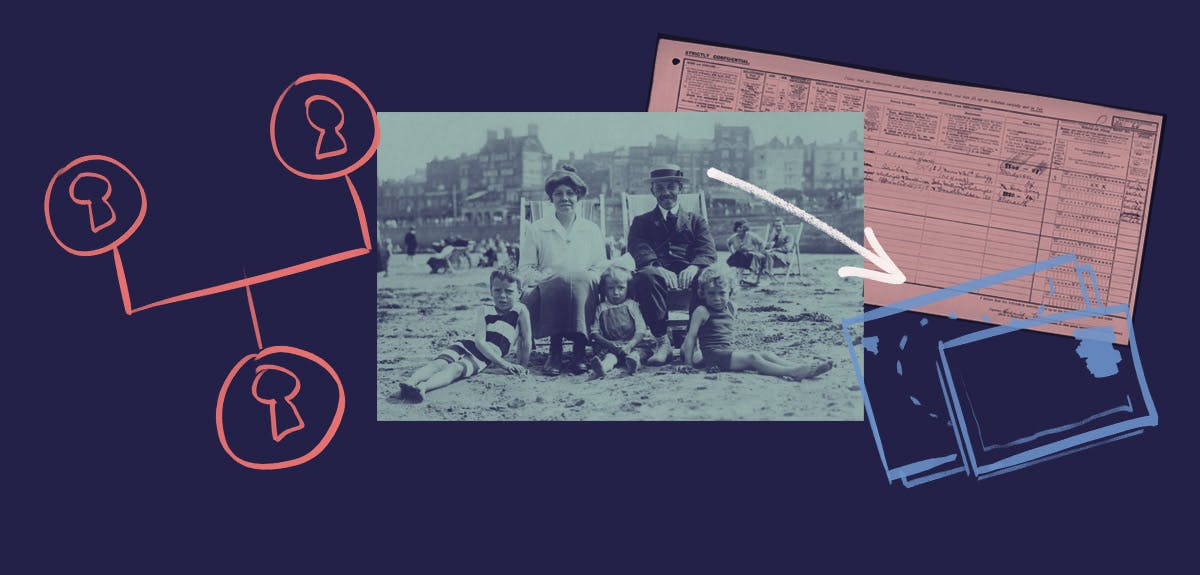5 smart search skills that will make your family tree flourish
2-3 minute read
By Guest Author | March 6, 2024

Else Churchill from London's Society of Genealogists shares her top five tips for making the most of online family history research indexes.
With over 30 years of experience as a genealogist, Else Churchill knows a thing or two about searching online indexes. Follow her expert advice and you'll soon be filling your family tree with detail-rich discoveries and stories.
1. Less is more when you're getting started
This is one of the most important tips to remember if you're having trouble finding your family members in genealogy resources. You may not need to complete all the boxes or narrow your search.
Search for ancestors now
Enter a few details to see their records at your fingertips
If you enter a date that isn't included in a record, such as a birth date that doesn't feature in a service record, it could prevent the record you want from appearing in your results. Start with less detail, maybe just a name, and from there, filter or narrow your search results.
2. Use a family historian's secret weapon: wildcard character replacements
Be aware of possible transcription errors, or mistakes when the original clerk may have misspelled a name. To ensure you don't miss a possible match try doing a wildcard (*) search.
The * can replace any letter. For example, searching for "Sm*th" will deliver results for Smith and Smyth. Or searching for "Church*" will bring up surnames with alternative endings, such as Churchill or Churches.
When considering how to make the most of wildcard searches, there are a couple of tips worth noting.
First letters are often mistranscribed
The first letters of names and places are the most commonly misread or misrecorded details in census records and parish registers. Wildcards can help you overcome this challenge.
Watch out for abbreviated names
Check how abbreviated forenames such as Wm for William, Jas for James or Jn for John have been dealt with. Variants like these may not show up in your search results. Most genealogy search engines offer a "Name variants" tickbox to tackle this issue. Keep it ticked and you'll see name variations in your search results, widening your chances of finding the person you're looking for.
3. Get creative with search terms
When you're following the trail of an elusive relative or cross-checking existing ancestry research, using different search terms can help. Use the information you know to search with a mix of forename, surname, age, place of birth etc. Always remember the enumerators and clerks copying the original records could sometimes make errors.
4. From death certificates to directories: search far and wide
Cross-referencing facts between different sources is essential for solving your family history puzzle. Compare what you've found on Findmypast to the free genealogy resources on FamilySearch.
What does your local library or The National Archives hold that could add to your family story? Can a relevant family history society offer guidance?
5. Always keep an open mind
While an online index may seem like a solid source of information, these records can vary greatly depending on who kept them. There are cases of record keepers documenting unfavourable information for people they thought badly of, or they could have misheard certain details. To guard against this kind of confusion, follow the rules of the Genealogical Proof Standard.
What are your top tips for tracing ancestors? Share ideas, ask for help and join the conversation in our free genealogy forum on Facebook.
Other articles recommended for you

A complete guide to building your family tree
Build Your Family Tree

Our experts break through 5 of your toughest family history 'brick walls'
Help Hub

4 simple steps to starting your family history journey
Getting Started

